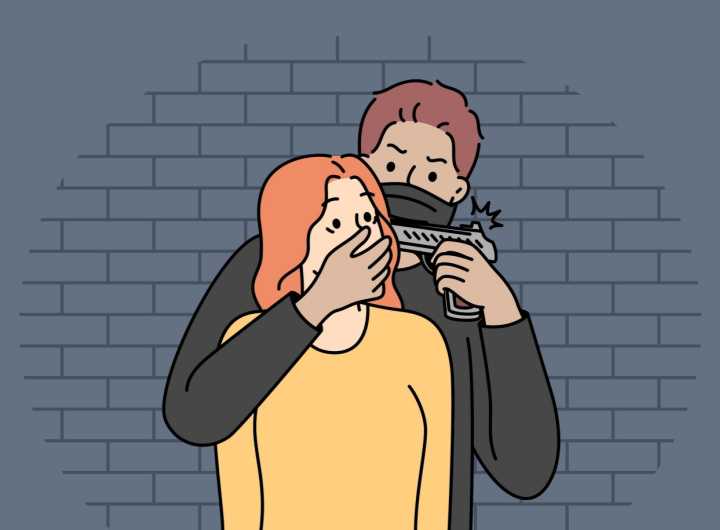Covid Assault: Is it a Real Thing?
Yes! Jurisdictions all over the country are faced with cases of individuals using or threatening to use Covid-19 as a “weapon” to harm others. You may have seen the now viral video of a woman who was seen coughing on produce in a grocery store, but that is only the tip of the iceberg and different jurisdictions are handling these situations in different ways.
Assault Laws in Arizona
In Arizona, a person commits assault when they:
- Intentionally, knowingly or recklessly cause any physical injury to another person; or
- Intentionally place another person in reasonable apprehension of imminent physical injury; or
- Knowingly touch another person with the intent to injure, insult or provoke such person.
Intentionally spitting on someone, generally, can be considered assault, especially if you spit in someone’s face. This is considered “touching” with intent to insult or provoke someone. But, in today’s world this could actually be considered a physical injury. There is a case in Arizona where some school kids were convicted of assault for putting toilet water droplets in a teacher’s soda. Even though the teacher was not actually injured, the court considered this a physical injury. A similar argument could be used regarding exposure to someone’s spittle, in the current environment.
Now, if the perpetrator spit at the victim, but the victim dodged the spit, this would typically not be considered an assault because there was no risk of physical injury that was averted, unlike dodging a punch to the face. But, under current circumstances, one could argue that the victim did have reasonable apprehension of physical injury, and since they would instantaneously be infected (whether or not symptoms developed), it could also be argued that there was apprehension of imminent injury. It could also be argued that, due to the minute nature of the infectious droplets, it is unlikely that none of the droplets made contact with the victim if the assault attempt happened at close range.
Arizona Laws on Threats and Intimidation
Arizona also has laws that criminalize threats and intimidation of physical injury by words or conduct. There is no requirement that the victim subjectively feel afraid, only that a reasonable person would foresee that the statement would be interpreted by the victim as a serious expression of an intention to inflict bodily harm upon them. For example, if someone drove past your house and yelled, “I am going to kill you, John Smith.” this would be the type of threat that someone could reasonably interpret as a “serious expression of an intention to inflict bodily harm.” The perpetrator must also have an intention to cause the victim to fear for their safety.
So, what if a person who had a beef with you started to approach you and said, “I am going to give you Coronavirus.” Well, since all it takes is a cough into your face for you to get it, and the purpose of the statement and conduct is to terrify you, this might be enough for a person to be convicted of criminal threat and intimidation.
Other Covid Assault Scenarios
Another scenario could involve a conventional assault, but where the attacker knowingly or unknowingly passed Covid to the victim during the assault. This could be hard to prove, but it could be possibly argued that the attacker “recklessly” injured the victim, even if the attacker was unaware they were infected. From a tort perspective, even this type of unintended consequence in the course of an assault could be actionable if it could actually be proven that one contracted it from another.
Alternatively, what if you are minding your business in a grocery store and a maskless person comes right up behind you to grab something off the shelf and at that moment, accidentally sneezes right on you. Disgusting, but probably not criminal.
Given the now widespread infection rates, in these scenarios it could be impossible to prove that one contracted Covid directly from another person, therefore making even tort liability very challenging.
Arizona does have public health laws that make it a misdemeanor to go into a public place and knowingly expose others to a contagious or infectious disease. There is little case law surrounding this statute, but other states have used similar statutes against persons with airborne diseases such as tuberculosis.
How Different Jurisdictions are Using Laws to Prosecute Covid Assault
Some jurisdictions are attempting to use terrorism statutes when someone behaves in a way that could cause widespread public harm and fear, since Covid does meet the federal definition of a “biological agent”. In the case of the Pennsylvania woman seen coughing on produce, the grocery store had to throw out $35,000 worth of food, and she was actually charged with making terrorist threats.
A man in Minnesota was also arrested on charges of making terrorist threats for coughing on a grocery store employee while making racist remarks, but using this type of charge when one individual threatens another individual, can be problematic. Still, numerous individuals across the country, including in Arizona, have been charged with threatening public officials, assault, or aggravated assault of a police officer when the individuals threatened to give police officers the virus if the officer arrested them or tried to fend off arrest by spitting or coughing on officers.
Here in Arizona, a man was charged with assault for coughing into the face of a U.S. Customs agent and saying “ You are sick, too.” Another man, posted a video of himself coughing on a gas pump in Arizona. This individual was not arrested or charged with a crime, and police investigators stated that the man showed no signs of Covid. However, the Yuma County prosecutor’s office is considering charging the man with unlawful use of infectious biological substance.
It is yet to be seen whether any or all of these charges will result in convictions. Judges will have to weigh many factors such as whether the individual knew they were infected with the virus, whether the actions of the defendant could have actually injured someone, and what defines “touching” for the purposes of assault when microscopic airborne particles may or may not have made actual contact with a victim. Given the evolving science surrounding transmission of Covid and the rising rates of infection, especially here in Arizona, expect to see a new category of expert witnesses in Covid assault cases and likely some new precedent cases.
Recommended Articles

Arizona’s new sealing statute is a powerful way for people who have been charged or convicted of many common offenses, to be able to say “no” in many instances.

In Arizona, “Aggravated Assault” charged under ARS § 13-1204 is a Class Four Felony, and in some cases with mandatory prison.

DUI or domestic violence police misconduct even if not resulting in grievous misfortune can sometimes provide a helpful remedy for the criminally accused.

people are surprised by how outsized the consequences some misdemeanor convictions can be. collateral consequences—meaning all those hidden consequences.

For thirty years two federal laws prohibited all those convicted of misdemeanor domestic violence offenses from ever possessing firearms.

About Michael Harwin
Michael’s skill and experience have been recognized repeatedly. He holds an A-V 5/5 preeminent rating by Martindale Hubbell. He has been named one of the top lawyers in Arizona by Southwest Superlawyers, and one of the best lawyers in Tucson by Tucson Lifestyle Magazine. He also has been named one of the best lawyers in the United States by BestofUS.com , and given the highest rating possible by AVVO, 10/10 Superb. Amazon Books


